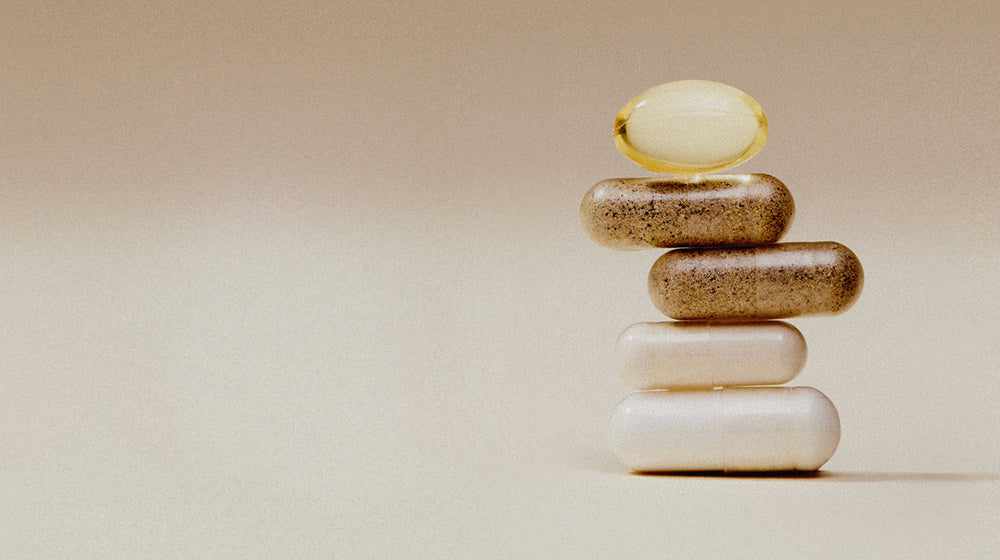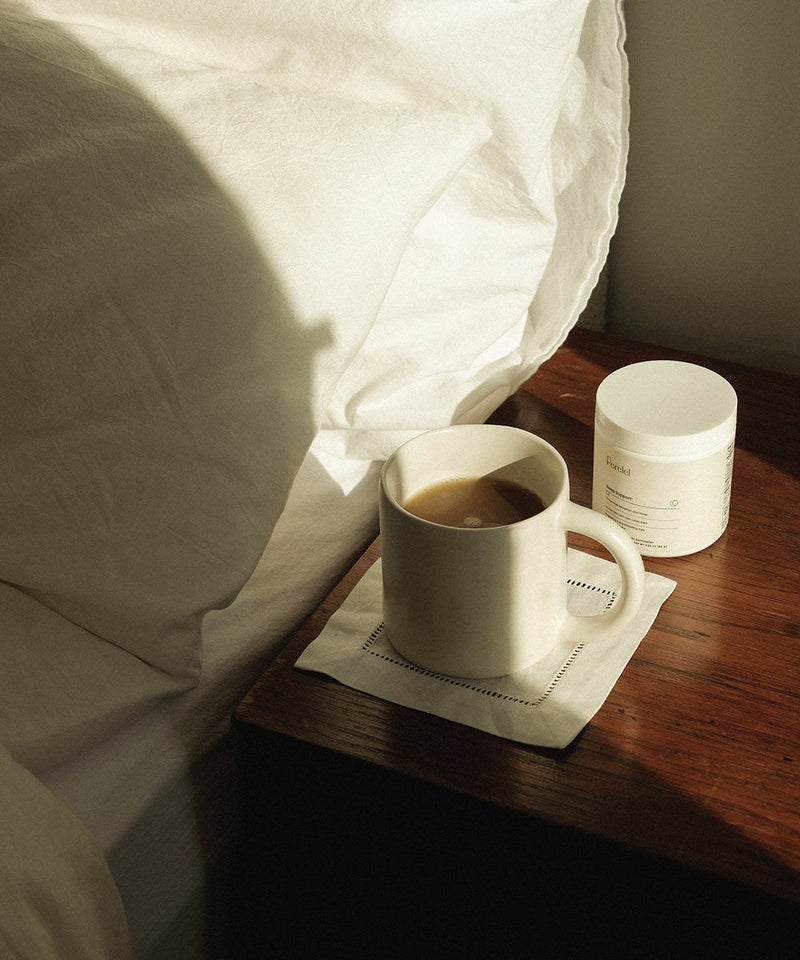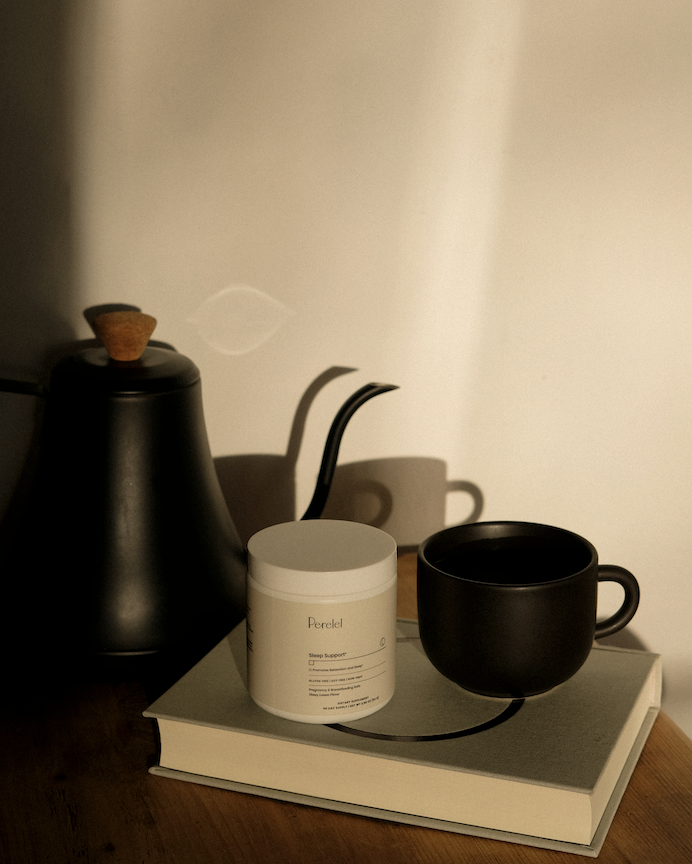Sleep helps to heal your heart, support hormone balance, improve insulin resistance, and boost immune function.1 But many of us struggle to get enough of it—more than one-third of Americans fall short of the recommended seven hours per night, and around 30 percent of adults deal with symptoms of insomnia.2
If your sleep habits have been less-than-dreamy lately, what you put on your plate can make a difference. Certain foods can help prepare your body for a good night’s sleep, while others can keep you tossing and turning.
“Nutrition plays an important role in sleep quality by influencing key hormones and neurotransmitters, such as melatonin and serotonin, which regulate sleep cycles,” says Stephanie Lauri, Registered Dietitian and Perelel Panel Expert, specializing in prenatal and postnatal nutrition. “Consuming a balanced diet rich in complex carbohydrates, lean proteins, healthy fats, and essential vitamins and minerals can promote better, more restorative sleep.”
Here are the foods you should consume for better zzz’s — and a few to avoid.
$32.95
$44.95
$46.95
Shop the Article:

Sleep Support*
/ Month
Shop Now

Synbiotic Greens Powder
/ Month
Shop Now

Hormonal Balance Support*
/ Month
Shop Now
What to Eat for Better Sleep
Key nutrients that benefit sleep include tryptophan, magnesium, calcium, B vitamins and antioxidants, Lauri says. Here are a few foods that can help you get more of those nutrients.
Nuts and seeds
You’ve heard of tryptophan, an amino acid found in turkey—and one of the reasons you might feel sleepy after a big Thanksgiving feast. Tryptophan helps the body produce melatonin, a hormone that regulates sleep cycles, along with serotonin, a neurotransmitter that affects sleep and mood.3
Of course, you’re probably not planning to roast a turkey before bedtime. But nuts and seeds also provide tryptophan, plus magnesium, which can improve sleep quantity and quality.4 Magnesium “has been shown to help with better sleep quality by lowering stress levels and promoting relaxation,” says Raj Dasgupta, MD, a quadruple board-certified physician specializing in sleep medicine and Chief Medical Advisor for Sleepopolis.
Pumpkin seeds in particular are one of the richest food sources of magnesium, with 156 mg per serving. Or snack on a handful of almonds—they offer 80 mg of magnesium per serving.5
Spinach
This dark leafy green is another heavy-hitter when it comes to magnesium, with 78 mg per serving. Spinach is also a good source of calcium, providing 123 mg per ½-cup serving of cooked spinach. Research has linked low calcium levels to shorter sleep time, longer sleep latency (aka the time it takes to fall asleep), and more disrupted sleep patterns.6 “Calcium helps the brain produce melatonin for a regulated sleep cycle,” Lauri explains.
Tart cherry juice
“Tart cherries are one of the natural sources of melatonin, which helps regulate our sleep and wake cycles, so they might help improve sleep if eaten before bedtime,” says Raj Dasgupta, MD, a board-certified physician specializing in sleep medicine and Chief Medical Advisor for Sleepopolis. Research suggests sipping a cup of tart cherry juice twice a day can improve sleep time and sleep efficiency (the amount of time you’re actually asleep while in bed).7
Chamomile tea
While it’s smart to avoid caffeinated teas like black tea or oolong before bedtime, chamomile is naturally caffeine-free, and it may have sleep-boosting properties. Research suggests this herbal tea can help lessen anxiety, combat insomnia and significantly improve sleep quality.8 “Drinking chamomile tea might be beneficial as it contains apigenin, an antioxidant that might help initiate sleep by binding to brain receptors,” Dr. Dasgupta says.
Kiwi
This sweet fruit is an ideal bedtime snack. One study found that people who ate two kiwis an hour before bedtime reported better sleep quality based on several different parameters—they fell asleep faster, slept longer and spent less time awake during the night than those who didn’t.9
Fatty Fish
The omega-3 fatty acids found in oily fish, including salmon, bluefin tuna and oysters, can help support brain, eye and heart health. But they may also play a role in helping you sleep more soundly. One study found that higher consumption of oily fish was associated with better sleep quality.10
Fatty fish also provide vitamin B12, which plays a role in regulating the natural sleep-wake cycle. Low levels of this essential B vitamin have been linked to insomnia symptoms.11 Oysters in particular are one of the highest food sources of vitamin B12, providing more than six times the recommended daily intake in each serving.12
Foods to Limit Before Bedtime
To support healthy sleep habits, aim for a balanced diet of nutrient-dense foods. “Food intakes of caffeine, sugar and processed foods can lead to disrupted sleep patterns, impacting overall health and well-being,” Lauri says. Here are a few foods that can have a negative impact on your sleep patterns.
Alcohol
Think twice before having a nightcap to relax. While alcohol can make you feel drowsy and fall asleep faster, it can also mess with your circadian rhythm and lead to restless sleep throughout the night.13
Caffeine
Aim to cut off your caffeine intake around 6 to 8 hours before bedtime. “Coffee and other caffeinated beverages can overstimulate the central nervous system and block adenosine, a neurotransmitter that helps us feel sleepy—especially if consumed later in the day,” Dr. Dasgupta says. Don’t forget to watch for sneaky sources of caffeine like chocolate, pre-workout drinks, and certain medications.
Spicy or acidic foods
Eating these foods too close to bedtime can cause discomfort and acid reflux, making it difficult to sleep, Dr. Dasgupta says.
Sugar
“Foods and drinks that are high in sugar may upset your sleep by causing energy spikes and crashes," Dr. Dasgupta says. And the relationship between sleep and sugar works both ways — research suggests poor sleep quality can make it harder to maintain healthy blood glucose levels.14

theFolio in Your Inbox
Sign up to receive doctor-backed, stage-specific content in your inbox each week.
References:
1National Heart, Lung, and Blood Institute: How Sleep Affects Your Health
2National Council on Aging: Sleep Statistics and Facts
4Sleep Foundation: Using Magnesium for Better Sleep
5National Institutes of Health: Magnesium Fact Sheet for Health Professionals
10Oscar H Del Brutto et al; Dietary fish intake and sleep quality: a population-based study; Nov 2015
12National Institutes of Health: Vitamin B12 Fact Sheet for Health Professionals
This article is for informational purposes only. It is not, nor is it intended to be, a substitute for professional medical advice, diagnosis, or treatment and we recommend that you always consult with your healthcare provider. To the extent that this article features the advice of physicians or medical practitioners, the views expressed are the views of the cited expert and do not necessarily represent the views of Perelel.





















